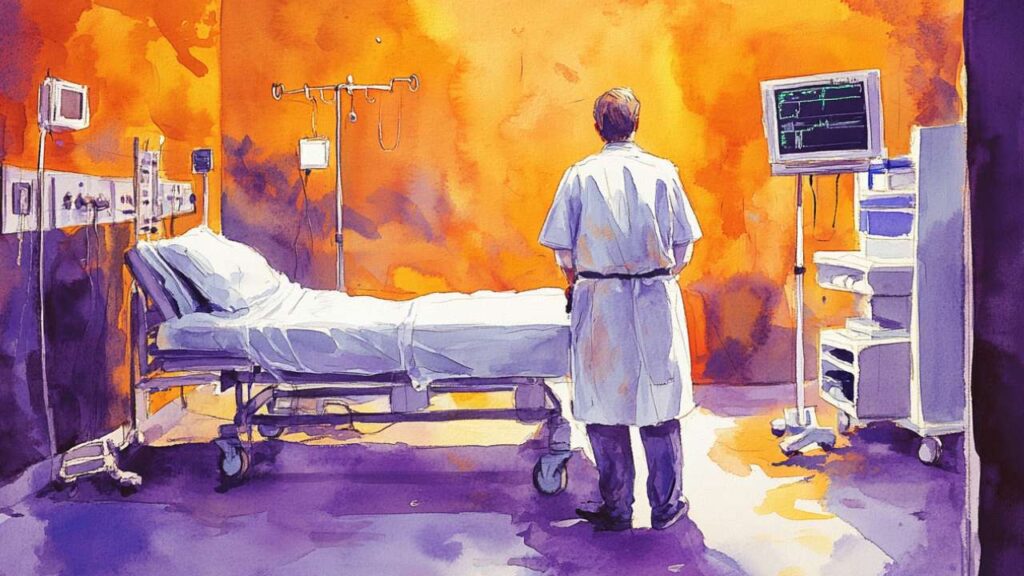Following an accident or assault, and generally after filing a complaint, you can go as a victim to a Forensic Medical Unit (UMJ). You may wonder about its role and that of the forensic doctor.
What is a Forensic Medical Unit (UMJ)?
A Forensic Medical Unit (UMJ) is a place where medical staff collaborate with judicial authorities by performing medical acts on judicial requisition, meaning at the request of a judicial police officer or the Public Prosecutor, after a complaint has been filed. It is important to request an appointment with the UMJ when filing a complaint. It is usually located in a hospital.
Exceptionally, for victims of domestic and sexual violence, specific procedures, outside of requisition, have been put in place to ensure urgent forensic medical care.
UMJ teams are composed of doctors, forensic doctors, nurses, psychologists, and psychiatrists.
The UMJ plays a role in analyzing and caring for assault victims, to determine the physical and psychological consequences related to the offenses suffered, particularly the ITT, which is the time during which the victim is unable to perform daily life activities.
UMJs can also conduct assessments concerning victims of road accidents, work accidents, or for asylum seekers.
Some UMJs also handle medical examinations of people in police custody to see if their health condition is compatible with detention.
The examinations are divided into two parts: the medical part (physical, somatic, gynecological examinations) and the psychological part carried out by a psychiatrist.
UMJ professionals do not provide long-term follow-up. They refer patients to external partners for ongoing care.
Unlike the Forensic Medical Unit, in Emergency Forensic Medical Services, the notion of urgency is emphasized. Consultations take place urgently, without appointment or prior planning.
For example, following a sexual assault, care and preservation of evidence must be carried out quickly, as well as the implementation of certain treatments.
What is the role of the forensic doctor?
The UMJ doctor is responsible for carrying out:
- Assessments of blows and injuries, sexual assaults, or mistreatment. Different types of victims may be concerned: assault in public places, domestic violence, sexual violence, child or elder abuse, moral harassment, road accidents, terrorist attacks, etc.
- Medical examinations of people in police custody.
- Assessments of the psychological impact related to an assault, for example
The forensic doctor generally intervenes after acts of violence in order to observe injuries and lesions, evaluate them, and determine possible damages.
After examining the victim, the UMJ forensic doctor establishes a descriptive certificate of the observed physical and psychological impact and determines a total incapacity for work (ITT) which will be used to qualify the facts during the criminal procedure. The medical report is then submitted to the police or gendarmerie service that issued the requisition, to be attached to the complaint.
If a month after the incident, the injuries have worsened or are still present, or if you have various problems, particularly with sleep, you should inform your general practitioner, who will refer you to the UMJ forensic doctor so that they can observe the evolution of your condition. With this certificate, you can go to the police station or gendarmerie so that an appointment can be made with the UMJ.
It is not the forensic doctor’s role to take sides on the facts, in terms of whether they were intentional or not.
According to Article R4127-105 of the Public Health Code:
“No one can be both an expert doctor and a treating doctor for the same patient.
A doctor must not accept an expert mission in which their own interests, those of one of their patients, one of their relatives, one of their friends, or a group that regularly uses their services are at stake.”
In principle, the UMJ doctor does not provide medical care, except in emergencies. They can prescribe medication during police custody, within the time allotted to them, or following sexual assaults.
Regarding individuals in police custody who have chosen to see a doctor, the UMJ doctor verifies that their situation is compatible with the conditions they are subjected to, checks if they have any specific allergies, or if they are on daily medication that they cannot do without. They are also asked if there has been any police violence and if the custody is proceeding well.
The UMJ doctor may also be appointed to carry out a criminal assessment. In this case, they must answer very specific questions posed by judicial magistrates.
This phase occurs after the qualification of facts and before the trial. If necessary, the doctor may be required to go to court to intervene as an expert during the trial.




